Kenya Coffee Manor Coffee Bean Grade description in detail
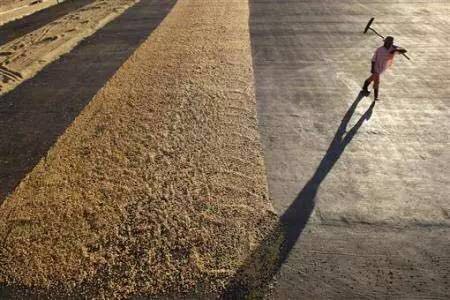
In recent years, more and more people like to drink coffee, and they also know more and more about the taste, aroma and other aspects of coffee. In the past, we must have heard the older generation always say, "Coffee must not be sour!" "as long as coffee is sour, it is shoddy coffee! "that kind of thing. Of course, looking back from the current point of view, "sour coffee = inferior coffee" has long been an impractical and incorrect concept. On the contrary, more and more coffee fans have begun to prefer coffee with acidity, and even can't do without sour coffee from now on. Women, in particular, have a higher acceptance of acid. Of course, this may also be due to the relationship between time and space, the early coffee refining technology is not as modern, the source is not transparent, perhaps mixed with bad flavor, unpicked beans and roasted into medium-shallow roasting, of course, the bad taste is more likely to be drunk clearly. In recent years, the popularity of boutique coffee (Note 1) has begun to promote the simple taste of black coffee, and pay more and more attention to the sour, fragrant, sweet, mellow and other flavors of coffee itself. On the contrary, the word "sour coffee" has become a representative of coffee taste.
Kenya Coffee is most famous for its adorable sour taste. Here's how to get to know today's protagonist: Kenya AA!
Coffee introduction
Africa has always been one of the best coffee producers in the world, and is famous all over the world for its charming acidity and aroma, and Kenya is certainly not absent. Kenya is a big coffee country in East Africa and one of the most important and irreplaceable producers, next to the Republic of Ethiopia, the native place of coffee in the world. Coffee farmers are generally highly educated, studying fine agriculture and growing top coffee. Coffee producers in Kenya are mainly divided into two types, the first type is large estates, and the other is the so-called "small farmers". However, whether they are large coffee farms or small farmers, the coffee beans produced by them have been refined, the vast majority will be transported to the official Kenyan coffee shop for unified grading identification. The coffee bureau will first send samples of the coffee beans collected for auction to interested buyers for trial, and hold an auction every Tuesday at the Nairobi Coffee Exchange Coffee Exchange in Nairobi, the capital of Kenya. Through a transparent auction mechanism and a dual-system parallel approach of official sales agents and independent sales agents, foreign buyers can also directly negotiate with corresponding producers to buy coffee. There is no need to go through the official auction board, so producers' hard work can be rewarded more fairly and equitably, without being exploited by the brokers in the middle. Because of this, coffee farmers are more willing to try their best to produce high-quality coffee beans in order to sell at a good price.
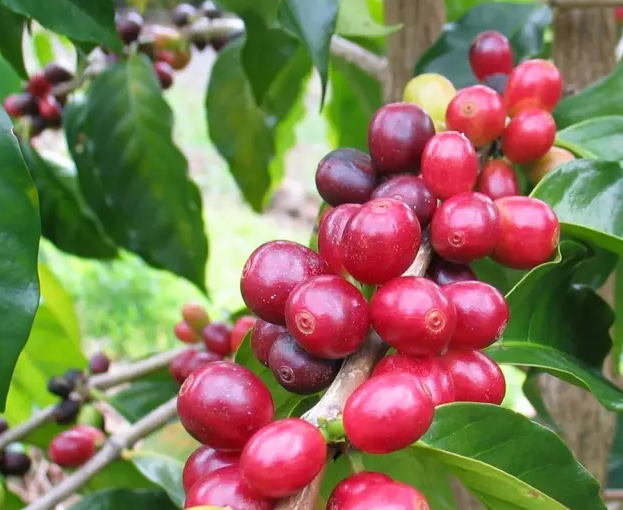
The coffee grading system in Kenya is distinguished by AA-Plus (AA+), AA and AB, which refers to the uniformity of the particle size of coffee beans, rather than the quality of coffee. High-quality Kenyan coffee beans are widely grown between 4200 and 6800 feet (about 1300 to 2100 meters) above sea level. The Kenyan AA Kaguyu introduced in this small quantity is refined by the Tyka processing Plant, which has a history of at least 92 years in central Kenya. The town of Dika is located in the Aberdare Mountains in central Kenya, with an elevation of more than 1800 meters. Due to the influence of high altitude, the temperature will not exceed 27 degrees even during the day, and the low temperature will fall around 15 degrees, which is quite suitable for the climate of coffee trees.
Note 1: boutique coffee (Specialty Coffee) can also be called selected coffee, exquisite coffee, the original text should mean "special, specially selected" coffee, "boutique" gives people a good-looking feeling, but it may be due to the influence of the trend in recent years that the word "boutique" can give people a high-level impression as long as anything is worn on it. Therefore, at present, the mainstream in China is still accustomed to calling Specialty Coffee "fine coffee" rather than "refined coffee, selected coffee". Personally, I think that the next two names should be more in line with the spirit of this kind of coffee, and the price of "boutique coffee" is actually not high. Coffee should be a kind of people-friendly drink that everyone can afford. The word "boutique" seems to be equated with expensive boutiques such as LV and Chanel.
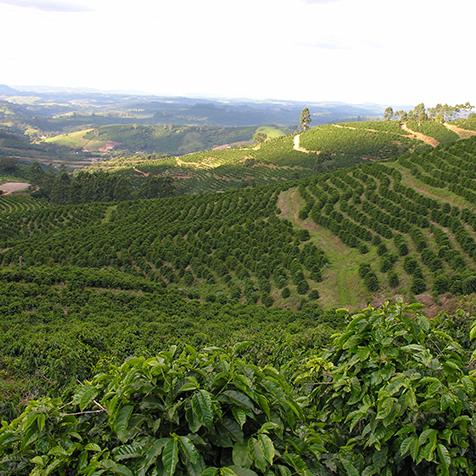
Production resume
Country of production: Kenya Kenya
Producing area: Kiriyaga Kirinyaga
Grade: AA
Producer: Mulua Coffee Farmers Association Murue Coffee Farmers Co-operative
Processing plant: Dika Coffee processing Plant Thika Coffee Mills
Treatment method: washing method Washed
Variety: SL28
Altitude: 1700-1950 m
Flavor narration
Tropical fruit, BlackBerry, black vinegar millet, kumquat, citrus, cream, apricot
Important Notice :
前街咖啡 FrontStreet Coffee has moved to new addredd:
FrontStreet Coffee Address: 315,Donghua East Road,GuangZhou
Tel:020 38364473
- Prev
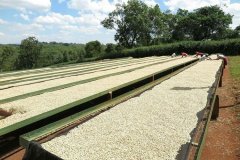
Description of the flavor and taste of Tanzania's top coffee Ruvuma (Lumumar) AAA coffee beans
Tanzania's top coffee Ruvuma (Lumuma) AAA Kenya AA TOP is the highest grade in Kenya, while Lumumar AAA is the highest grade in Tanzania, with a particle size of about 18-20 mesh, with a clear central separation line after roasting. Zhongshenpei and Kenyan AA TOP have their own advantages and characteristics, and should be recommended. The rich aroma of coffee implies a hint of chocolate milk and core.
- Next
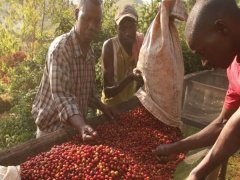
Description of Burundian Bourbon Coffee Flavor in the Heart of Africa Sun description of hand-pulping parameters and introduction of Parma treatment Plant
Professional baristas please follow the coffee workshop (Wechat official account cafe_style) Burundian Champion processing Plant (Burundi Kayanza Kabuye SEGEC Mpanga Natural) production area: Kayanza Kabuye variety: bourbon (Bourbon) altitude: 1800 meters above sea level: sun harvest time: may August flavor
Related
- Detailed explanation of Jadeite planting Land in Panamanian Jadeite Manor introduction to the grading system of Jadeite competitive bidding, Red bid, Green bid and Rose Summer
- Story of Coffee planting in Brenka region of Costa Rica Stonehenge Manor anaerobic heavy honey treatment of flavor mouth
- What's on the barrel of Blue Mountain Coffee beans?
- Can American coffee also pull flowers? How to use hot American style to pull out a good-looking pattern?
- Can you make a cold extract with coffee beans? What is the right proportion for cold-extracted coffee formula?
- Indonesian PWN Gold Mandrine Coffee Origin Features Flavor How to Chong? Mandolin coffee is American.
- A brief introduction to the flavor characteristics of Brazilian yellow bourbon coffee beans
- What is the effect of different water quality on the flavor of cold-extracted coffee? What kind of water is best for brewing coffee?
- Why do you think of Rose Summer whenever you mention Panamanian coffee?
- Introduction to the characteristics of authentic blue mountain coffee bean producing areas? What is the CIB Coffee Authority in Jamaica?

